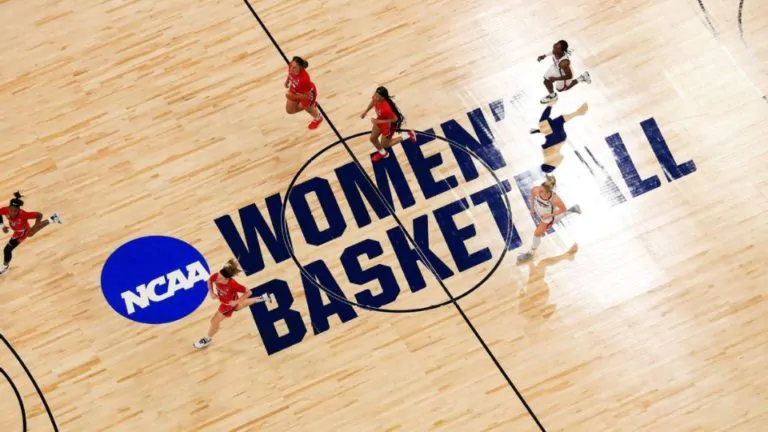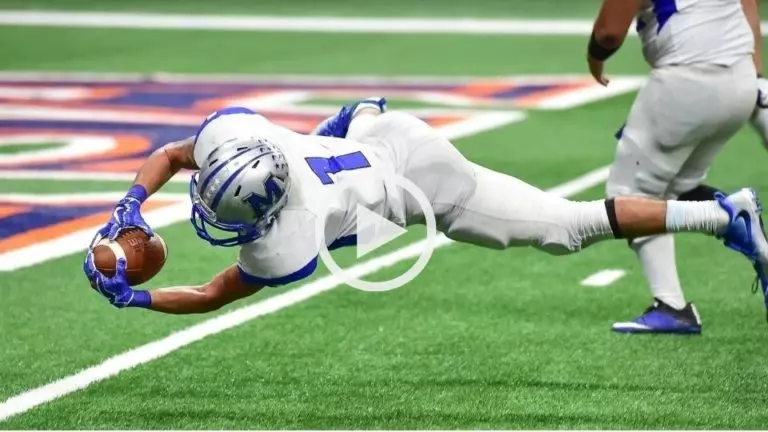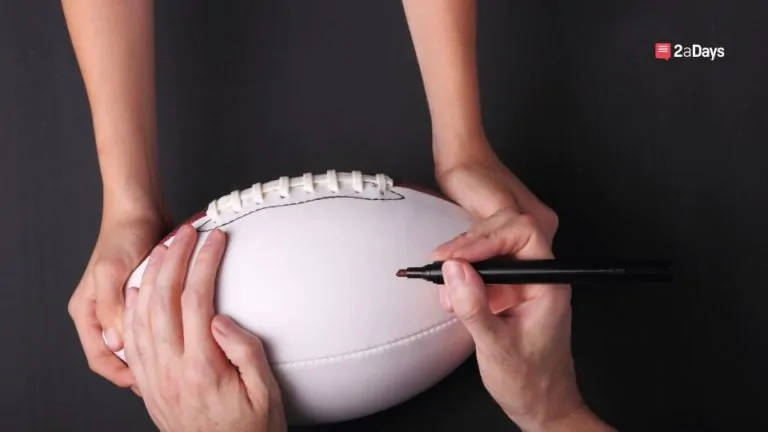**Our Constitutional Convention Central Series addresses how the NCAA Constitutional Convention will impact college athletes.
The NCAA is in the process of rewriting its constitution, and it's a tall order. What better way to prepare than with some research?
Last month, the NCAA announced the findings of its Constitution Committee Survey. The purpose of the research was “to identify current NCAA constitutional elements that should carry into the future and solicited suggestions for modernization and improvement.”
Related: Constitutional Convention Central: What College Athletes Need To Know
In order to do this, the NCAA surveyed multiple stakeholders in college sports: athletics workers, athletes, and campus leaders from all divisions. The survey asked their thoughts on a variety of NCAA policies and what other topics they'd like to be addressed next January. Here are some significant takeaways from the preliminary research:
Problems with the Design
First, there are a few problems with the survey design:
- The survey was only active for ten days, which is a pretty narrow window from a research methods perspective.
- Although college athletes were surveyed, the number of administrators who responded was more than double the number of athletes who responded. The survey was conducted near the beginning of the fall semester/term, when many college athletes are busy, so this is likely not a representative sample from an athlete's perspective.
- Aside from information related to title and status, demographic information is missing from the survey results, so we don't know how many women, minorities, or LGBT+ people were represented. Given the administrative-heavy representation, it's reasonable to assume that these minority populations were not adequately addressed.
Broad Purpose
The survey findings indicate that the NCAA's broad purpose should be hosting championship events and conducting standards for areas like health & safety and eligibility. What is interesting is the rates of agreement. For example, college athletes ranked the importance of health & safety, diversity & inclusion, and non-institutional compensation/benefits (aka NIL) higher than administrators, conference commissioners, and university presidents ranked those same categories.
Related: What it Means for Athletes to Profit off of NIL as of July 1st and What's Next
Decentralization of Power
Much of the conversation around the convention involves the decentralization of power in college sports (e.g. letting conferences and universities create policy in the future, rather than the NCAA). Interestingly, the survey findings seem to indicate that numerous stakeholders at the DI level do not support this notion, or at least only support a narrow definition of decentralization.
- 70% of athletics health care administrators indicated a preference for national standards for health and safety
- Over 70% of athletics diversity and inclusion designees indicated a preference for national standards for inclusion and equity
- The only areas where DI respondents believed the NCAA shouldn't have the power to set minimum standard levels is the allocation of athletics resources, athletics aid, and institutional benefits, which respondents mostly believed should be set at the campus level
- Respondents across divisions believed that academic, eligibility, and recruiting standards, should be handled at the national (NCAA) level
Overall, respondents expressed a need for decentralization while maintaining some sense of centrality and control at the national level. Respondents also varied in their ideas for the role of the NCAA. Some noted that the NCAA should not oversee issues like sexual misconduct, and that health & safety should be managed at the conference or university level.
Related: Can the NCAA Cap NIL Earnings?
Structural Change
The majority of DI respondents agreed that the current structure of the NCAA needs to change, but there was a difference in opinion on how this should happen (but college athletes were not asked this question). Some believe that increasing the number of divisions is necessary in the future. This could be done by either expanding DIII or allowing the Power Fives to break off into their own division. Others believe that FBS football should be its own division, or that divisions should be broken up geographically or by campus enrollment level.
Reduced Role of University Presidents
Many respondents believed that reducing the role of university presidents is important moving forward, and that the power of athletic directors and conference commissioners should increase.
Sport Participation Opportunities
College athletes were the most likely to believe that sport participation opportunities should increase, while healthcare administrators were the least likely. College athletes also consistently advocated for increased access to mental health resources in their open-ended responses.
Amateurism
Administrators were most likely to emphasize that principles of amateurism should be upheld. Amateurism was a common “non-negotiable” value expressed by respondents.
Overall
Overall, respondents indicated that if there were no restraints, they would most want to see the NCAA uphold – not abolish – its model. They are okay with it maintaining its current role, but with less power. College athletes were most likely to indicate a need for increased athlete representation in decision-making and centering the college athlete experience.
All of this data can be summed up into three broad takeaways:
- First, priorities vary among respondents. Athletes tend to prioritize reform in areas such as health and safety, athlete representation in decision-making, and diversity & equity. Administrators prioritize reform in areas such as maintaining athletic amateurism and ensuring competitive equity. Based on these findings, it appears that athletes are the people most invested in their well-being.
- Second, reform priorities also vary among divisions. Respondents from DII and III were concerned most with the simplification of institutional procedures and expressed a desire for more representation in the decision-making processes.
- Finally, although there is a general consensus that college sports need to be decentralized moving forward, there is not a consensus on what decentralization will look like.
These findings are preliminary, and given the NCAA's lack of transparency about demographic information, may not even be a representative sample. But, these survey results are likely to steer some of the conversation about the restructuring of the NCAA because the findings reveal one universal truth: people want change in college sports. Whether or not they all agree on how the change will happen or what it will entail is another story.
November 9th: Committee Makeup and Why the Policies Need to Change
There's still a lot we don't know about the NCAA's future, but we are keeping a close watch on the progress. Next up in our Constitutional Convention Series, I'll cover who is writing the by-laws, what's at stake, why the policies need to change, and whether it will be a plausible change.
* Originally published on October 26, 2021, by Katie Lever, Ph. D







